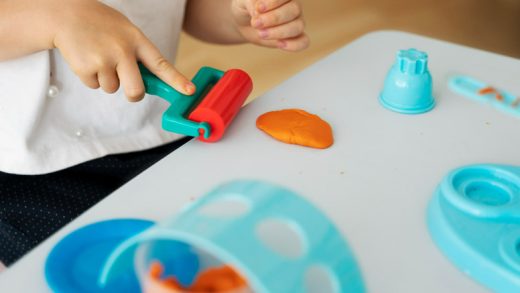Positive parental participation in education is important for children’s development and academic success. Parental involvement in their child’s learning journey creates a supportive home environment, improves communication between parents and teachers, and promotes a culture of continuous growth. Research reveals that kids with passionate parents have greater motivation, better behaviour, and higher academic success. Strong parental participation helps to boost children’s self-esteem and resilience. It prepares them to face obstacles both inside and outside the school. Parents that actively participate in their children’s education help them achieve academic success. They also promote their entire well-being and personal development.
What Is Meant by Parental Involvement in Education?
Parental involvement is the active involvement of a parent in the education of their kid. Parents can help at home in a number of ways. It can include reading with their kids, keeping an eye on their tasks, and talking about the school day and events. Parents could help out at school by working in classes, going to parent-teacher meetings, or helping to set up events. There is a link between positive parental involvement and doing well in school. When parents are excited about their child’s school, they get involved, talk to, and engage their child in the learning process. It makes the child better at school and makes them more successful overall.
Importance of Parent’s Involvement in Child’s Education
You want to do all in your power as a parent to ensure your kid succeeds. Engaging in their education is one of the best ways to do this. Parental involvement in their child’s education greatly enhances their academic performance. The advantages of positive parental involvement in their child’s education are as follows.
- Increased Motivation: Parental involvement in their child’s education motivates them to put in more effort and aim for higher marks. Children take their studies seriously when they see their parents actively interested in them.
- Improved Social Skills: When parents actively participate in their children’s schooling, they help to promote healthy social skills and strong ties with their classmates. Children become more self-assured and are more equipped to engage with their peers. This is because their parents show an interest in their school life and extracurricular activities.
- Increased Academic Achievement: With positive parental roles in education, the child’s grades are likely to increase. This is so that their children may acquire better study habits. They can maintain focus on their academics when their parents get involved in their education.
- Developed Life Skills: Parents who participate in their child’s education assist in developing crucial life skills. It can be communication, problem-solving, and critical thinking. These abilities are required for success in the real world. When parents participate in their child’s education, they help to ensure that their children are ready for the future.
- Absences are reduced: Absences adversely affect children’s social development and limit their academic achievement. Students who miss class often experience a decline in their development mentality, social awareness, self-efficacy, and self-management.
- Communication between teachers and parents is improved: A positive teacher-parent relationship could help the school’s knowledge about the student. It means that teachers are better able to support students in reaching their full abilities. When parents and teachers work together, it’s much better for kids to learn and do well in school.
- A positive school culture is fostered: When parents and teachers communicate effectively, parents will grow to understand the difficulties that teachers face. This knowledge and gratitude may result in more help.
Tips for Parents to Expand Their Role in Schools
Parents who are involved in their kids’ education support their kid’s need to do well in school. However, it may be difficult to know how to become active, particularly for parents who are managing full-time work. Here are a few easy ways parents may get more involved in their children’s education:
- Be present at school when possible: Parents who try to spend time with their kids at school are showing them that they value education. This does not mean that working parents must give up their whole spare time to help at the school! Parents may choose from among the numerous options for involvement in the classroom that best fit their lives.
- Show interest in kids’ schoolwork: When parents see that their child is having difficulty in school, they can help them or get help from others. As parents support their kids in fighting failures and expressing joy over achievements, they also strengthen their bonds with them. Showing that you care about what they’re learning helps reinforce the importance of it.
- Keep a positive attitude towards education: Many children say they hate school or don’t want to do their homework. Some parents may believe that giving them a hard time is the best course of action. On the other hand, positive parents are more likely to foster a positive outlook in their children. Particularly about school, young children are still developing their ideas and emotions. So, do your best to encourage them and support them as they overcome every challenge.
A child’s general growth and academic achievement depend heavily on positive parental involvement in education. Active parents provide a loving atmosphere that promotes resilience, confidence, and curiosity. Children with interested parents do better in school, behave better, and grow into more confident social beings. In addition to helping their kid succeed academically, parents who actively participate in their child’s education provide the groundwork for their child’s lifetime learning and overall well-being.
Consider enrolling your kid at Kangaroo Kids International Preschool to make sure they have the finest start possible in their educational career. Positive parental participation has a positive impact that goes beyond the classroom. It develops resilient, confident people who are ready for success in a world that is always changing. Therefore, it is still important to develop a relationship between parents and educators to achieve each child’s full potential.









